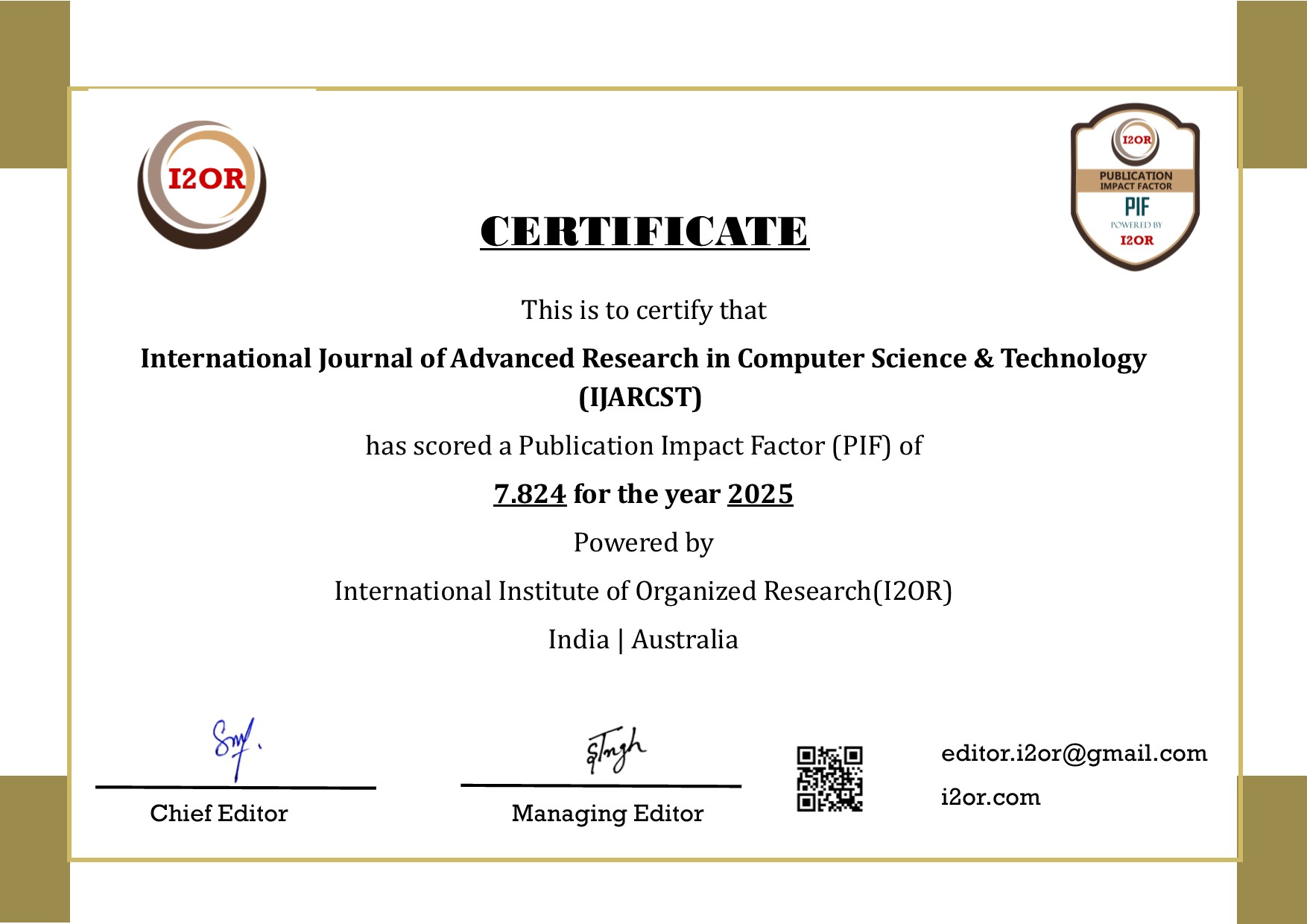Smart Cities: IoT-Based Applications and Challenges
DOI:
https://doi.org/10.15662/IJARCST.2020.0306001Keywords:
Smart Cities, Internet of Things (IoT), Urban Application, Challenges, Interoperability, Security & Privacy, ScalabilityAbstract
IoT technologies have emerged as critical enablers of smart city transformation, providing real-time monitoring, automation, and intelligent urban management. This paper explores key IoT-based smart city applications—such as smart transportation, energy-efficient buildings, environmental monitoring, waste management, and civil infrastructure sensing—while systematically examining the challenges to their successful deployment. Drawing on pre-2019 studies, we structure a research methodology encompassing descriptive literature review, case analysis, and challenge prioritization (e.g., employing frameworks like TOPSIS). Key findings demonstrate that IoT enhances urban efficiency, sustainability, and citizen services, yet faces significant issues including security and privacy vulnerabilities, interoperability and standardization gaps, scalability limits, lack of technical skills, and high deployment costs. A generalized workflow—from identifying urban needs and deploying IoT sensors, through data collection, processing, and service delivery, to continuous monitoring—is presented. Advantages of IoT integration include improved resource utilization, data-driven decision-making, and enhanced livability. Disadvantages center on cyber risks, system fragmentation, and digital inequality. Results show that large-scale deployments (e.g., Hamburg’s MONICA pilot) highlight both potential and complexity, while literature emphasizes the urgent need for interoperable standards, security frameworks, and workforce development. Conclusion affirms the transformative power of IoT in smart cities, but underscores that technological adoption must be accompanied by governance, privacy safeguards, and capacity building. Future research should focus on edge computing, AI-driven analytics, green IoT, blockchain-enabled security, and uniform standards to advance resilient, inclusive urban IoT systems.
References
1. Ahmad Khan, S., Arivazhagan, H., Sahu, S.K., Ravinder, B., Goel, V. (2018). Internet of Things (IoT) in Smart Cities: Challenges and Opportunities. Int. Journal of Science and Engineering. ephijse.com
2. Comprehensive ICT challenges review (security/privacy/interoperability). MDPI
3. IoT-enabled smart city systems and applications overview. ScienceDirect
4. MONICA project: large-scale IoT deployment in Hamburg. arXiv
5. Data fusion in smart city IoT applications. arXiv
6. Software platforms and unified architecture for smart cities. arXiv
7. Security vulnerabilities in smart city sensor hubs. WIRED
8. Smart cities as targets of cyberattack (Atlanta case). WIRED
9. Pilot stagnation, data silos, skills gap in IoT cities. Tecfutures
10. Large-scale sensor network constraints and decentralization need. MDPI
11.Interoperability standards: TALQ, oneM2M. Wikipedia+1
12.Interoperability, scalability, legal & social challenges. MDPI
13. Professional skill shortages in IoT and AI urban adoption. MDPI
14. Edge computing adoption pressures.





